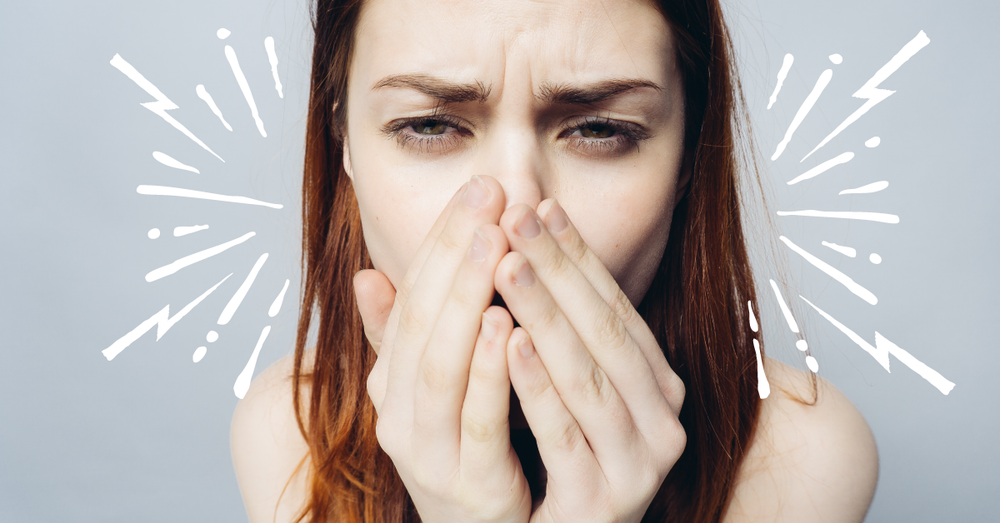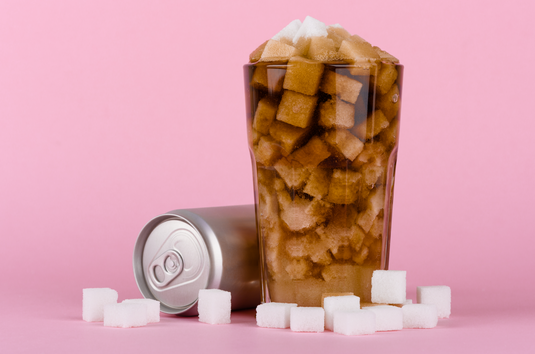Allergies, asthme et maladies auto-immunes : le lien caché

Saviez-vous qu'il fut un temps où les allergies saisonnières et le rhume des foins étaient à la mode ? Qu'il était chic d'avoir les yeux rouges et d'éternuer chaque printemps ?
C'est vrai, et oui, c'est presque incroyable ! Tout a commencé pendant la Révolution industrielle, lorsque les classes supérieures bénéficiaient d'une eau plus propre et de meilleurs sanitaires que l'Européen moyen.
Ce qui s'est passé était simple, mais inattendu. Avec une vie (légèrement) plus saine, leur flore intestinale s'est affaiblie. Elle ne bénéficiait plus d'un apport régulier de nouvelles bactéries provenant de l'eau et d'un assainissement insuffisant. Cette colonie microbienne intestinale affaiblie n'était plus en mesure de maintenir l'équilibre de leur système immunitaire, ce qui a entraîné des allergies saisonnières.
C'est assez étonnant et plutôt cool que nos bactéries intestinales, des cellules non humaines qui colonisent notre corps (principalement dans notre côlon), puissent jouer un rôle aussi important dans notre santé immunitaire.
En fait, elles le contrôlent (presque) entièrement ! Ce sont nos bactéries intestinales qui indiquent à notre système immunitaire quand réagir et quand ne pas réagir. Et la recherche établit un lien direct entre une colonie bactérienne intestinale plus faible et moins diversifiée et un système immunitaire surstimulé, débordé et sur-réactif.
Au début, il s'agissait d'un léger déséquilibre qui s'est manifesté par des allergies saisonnières, puis par de l'asthme. Le pollen, la poussière et les squames ressemblent à des virus et des bactéries. Un système immunitaire équilibré peut faire la différence entre les deux, mais un système immunitaire légèrement surchargé peine et peut attaquer ces allergènes extérieurs comme s'il s'agissait d'un virus envahissant.
Au cours des dernières générations, nos bactéries intestinales se sont affaiblies. En Amérique du Nord, nous vivons tous relativement propres. Nous buvons une eau sans bactéries et bénéficions d'un excellent système sanitaire. L'eau contient également du chlore, les viandes et poissons d'élevage conventionnels contiennent des résidus d'antibiotiques, et nous prenons des antibiotiques en cas d'infection bactérienne.
Ces nouveaux apports ont encore plus affaibli nos bactéries intestinales, ce qui a ajouté un nouveau déséquilibre du système immunitaire au mélange : les maladies auto-immunes.
Les maladies auto-immunes comme la thyroïdite de Hashimoto, la polyarthrite rhumatoïde, la maladie cœliaque et le diabète de type 1 sont en augmentation et peuvent être très difficiles à traiter. Ce sont des maladies complexes aux multiples facteurs, et la recherche révèle que nos bactéries intestinales pourraient jouer un rôle important dans leur développement.
Des chercheurs ont consacré beaucoup de temps à l'étude de deux groupes de personnes génétiquement très similaires – l'un en Finlande et l'autre en Russie – afin de comprendre pourquoi ces maladies sont en augmentation. Ces deux groupes vivent à moins de 160 kilomètres l'un de l'autre, et ce n'est que relativement récemment qu'une frontière les a séparés.
Ce qui est intéressant, c'est qu'ils présentent une différence considérable dans les taux de deux maladies auto-immunes courantes : la maladie cœliaque et le diabète de type 1. De plus, leurs gènes sont si similaires qu'ils peuvent exclure toute cause génétique à ces maladies. Il doit y avoir autre chose.
Le taux de diabète de type 1 en Finlande est cinq fois plus élevé qu'en Russie, et celui de la maladie cœliaque six fois plus élevé. Le risque de développer ces deux maladies est significativement plus élevé en Finlande qu'en Russie. Même le rhume des foins est 4,5 fois plus fréquent en Finlande.
Et quelle est la différence dans leurs modes de vie ? La Finlande est beaucoup plus propre. L'eau y est propre et les installations sanitaires sont excellentes, contrairement à celles de cette partie de la Russie. L'eau du groupe russe est contaminée par de nombreuses souches bactériennes différentes et les enfants présentent des taux très élevés d'infections bactériennes transmises par les matières fécales, comme H. pylori et l'hépatite A.
Il semble qu’une vie plus propre = des taux plus élevés d’allergies, d’asthme et de maladies auto-immunes.
La bonne nouvelle, c'est que nous pouvons contribuer à la santé de notre flore intestinale ! Et il n'est pas nécessaire de boire de l'eau contaminée par des bactéries pour y parvenir. Il suffit de prendre soin de notre flore intestinale en adoptant quelques gestes simples chaque jour.
C'est vrai, et oui, c'est presque incroyable ! Tout a commencé pendant la Révolution industrielle, lorsque les classes supérieures bénéficiaient d'une eau plus propre et de meilleurs sanitaires que l'Européen moyen.
Ce qui s'est passé était simple, mais inattendu. Avec une vie (légèrement) plus saine, leur flore intestinale s'est affaiblie. Elle ne bénéficiait plus d'un apport régulier de nouvelles bactéries provenant de l'eau et d'un assainissement insuffisant. Cette colonie microbienne intestinale affaiblie n'était plus en mesure de maintenir l'équilibre de leur système immunitaire, ce qui a entraîné des allergies saisonnières.
C'est assez étonnant et plutôt cool que nos bactéries intestinales, des cellules non humaines qui colonisent notre corps (principalement dans notre côlon), puissent jouer un rôle aussi important dans notre santé immunitaire.
En fait, elles le contrôlent (presque) entièrement ! Ce sont nos bactéries intestinales qui indiquent à notre système immunitaire quand réagir et quand ne pas réagir. Et la recherche établit un lien direct entre une colonie bactérienne intestinale plus faible et moins diversifiée et un système immunitaire surstimulé, débordé et sur-réactif.
Au début, il s'agissait d'un léger déséquilibre qui s'est manifesté par des allergies saisonnières, puis par de l'asthme. Le pollen, la poussière et les squames ressemblent à des virus et des bactéries. Un système immunitaire équilibré peut faire la différence entre les deux, mais un système immunitaire légèrement surchargé peine et peut attaquer ces allergènes extérieurs comme s'il s'agissait d'un virus envahissant.
Au cours des dernières générations, nos bactéries intestinales se sont affaiblies. En Amérique du Nord, nous vivons tous relativement propres. Nous buvons une eau sans bactéries et bénéficions d'un excellent système sanitaire. L'eau contient également du chlore, les viandes et poissons d'élevage conventionnels contiennent des résidus d'antibiotiques, et nous prenons des antibiotiques en cas d'infection bactérienne.
Ces nouveaux apports ont encore plus affaibli nos bactéries intestinales, ce qui a ajouté un nouveau déséquilibre du système immunitaire au mélange : les maladies auto-immunes.
Les maladies auto-immunes comme la thyroïdite de Hashimoto, la polyarthrite rhumatoïde, la maladie cœliaque et le diabète de type 1 sont en augmentation et peuvent être très difficiles à traiter. Ce sont des maladies complexes aux multiples facteurs, et la recherche révèle que nos bactéries intestinales pourraient jouer un rôle important dans leur développement.
Des chercheurs ont consacré beaucoup de temps à l'étude de deux groupes de personnes génétiquement très similaires – l'un en Finlande et l'autre en Russie – afin de comprendre pourquoi ces maladies sont en augmentation. Ces deux groupes vivent à moins de 160 kilomètres l'un de l'autre, et ce n'est que relativement récemment qu'une frontière les a séparés.
Ce qui est intéressant, c'est qu'ils présentent une différence considérable dans les taux de deux maladies auto-immunes courantes : la maladie cœliaque et le diabète de type 1. De plus, leurs gènes sont si similaires qu'ils peuvent exclure toute cause génétique à ces maladies. Il doit y avoir autre chose.
Le taux de diabète de type 1 en Finlande est cinq fois plus élevé qu'en Russie, et celui de la maladie cœliaque six fois plus élevé. Le risque de développer ces deux maladies est significativement plus élevé en Finlande qu'en Russie. Même le rhume des foins est 4,5 fois plus fréquent en Finlande.
Et quelle est la différence dans leurs modes de vie ? La Finlande est beaucoup plus propre. L'eau y est propre et les installations sanitaires sont excellentes, contrairement à celles de cette partie de la Russie. L'eau du groupe russe est contaminée par de nombreuses souches bactériennes différentes et les enfants présentent des taux très élevés d'infections bactériennes transmises par les matières fécales, comme H. pylori et l'hépatite A.
Il semble qu’une vie plus propre = des taux plus élevés d’allergies, d’asthme et de maladies auto-immunes.
La bonne nouvelle, c'est que nous pouvons contribuer à la santé de notre flore intestinale ! Et il n'est pas nécessaire de boire de l'eau contaminée par des bactéries pour y parvenir. Il suffit de prendre soin de notre flore intestinale en adoptant quelques gestes simples chaque jour.
3 étapes pour soutenir vos bactéries intestinales –
- Préparez votre intestin – créez le meilleur environnement possible pour vos bactéries intestinales en consommant des aliments fermentés chaque jour. Une seule portion suffit ! Des aliments comme de la choucroute non pasteurisée, du kéfir bio ou un complément fermenté comme les protéines végétaliennes fermentées+.
- Ensemencez votre intestin – Pour remplacer les bactéries que nous consommions auparavant dans l'eau, nous devons tous ensemencez notre intestin chaque jour avec un probiotique de bonne qualité. J'adore les probiotiques multi-souches comme Advanced Gut Health Probiotic .
- Nourrissez votre intestin avec des phytonutriments d'origine végétale. Vos bactéries intestinales adorent les phytonutriments comme les polyphénols et les antioxydants. On les trouve dans tous les fruits, légumes et superaliments. Pour un supplément de phytonutriments pour mes bactéries intestinales, je bois du greens+. C'est un superaliment riche en antioxydants et en polyphénols qui fait le bonheur de mes intestins.

















































